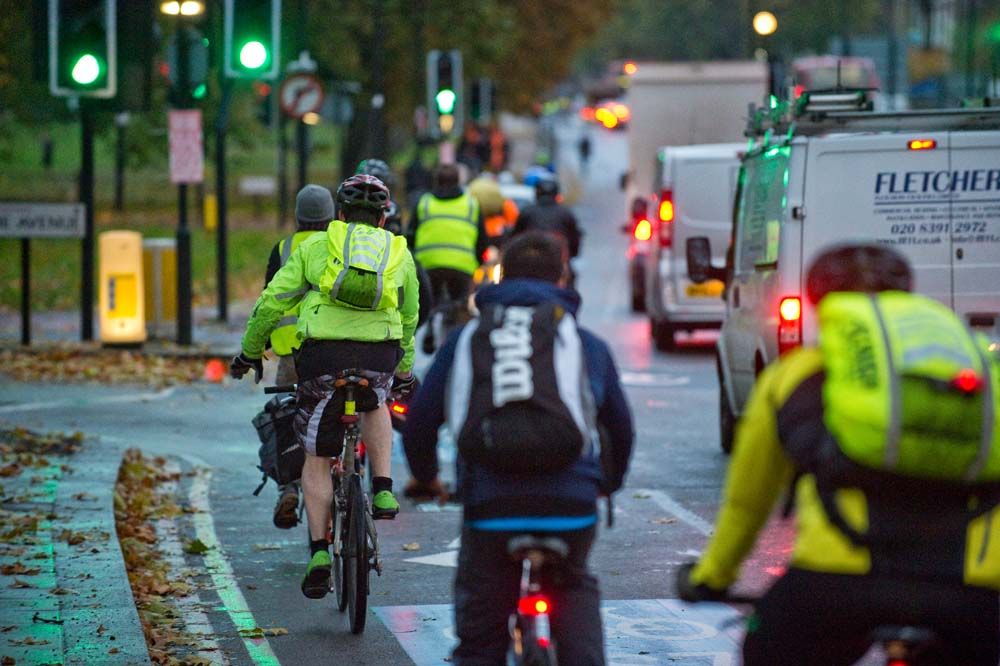Five per cent increase in number of cyclists killed and seriously injured in Britain
Chris Boardman calls for action to make Britain's roads safer for everyone, and brands rise in cycling, walking and car casualties as 'concerning'


The number of cyclists killed and seriously injured on Britain's roads during 2016 has been released by the Department for Transport, showing a rise of five per cent from 2015.
A total of 102 cyclists died on Britain's roads in 2016, with 3,397 reported serious injuries. A total of 18,477 cycling injuries were reported with minor injuries added to the figures for deaths and serious injuries.
The statistics give further information on the cyclists involved and where the injuries occurred.
>>> Tragic death of London cyclist killed by a tipper lorry inspires new play
Eighty-one per cent of cyclists injured were male, and 77 per cent of injuries occurred on roads with a 30mph speed limit. Forty-four per cent of injuries occurred on a weekday between 7-9am and 3-7pm – the times when people are commuting to and from work or school.
The DfT reports that the number of miles travelled by pedal cycle in 2016 rose six per cent to 3.5 billion vehicle miles.
It notes that "Overall pedal cyclist casualties were lower in 2016 than any year since 2010. This comes despite an estimated six per cent increase in cycling traffic in 2016 in comparison with 2015".
Get The Leadout Newsletter
The latest race content, interviews, features, reviews and expert buying guides, direct to your inbox!
Chris Boardman, British Cycling' policy advisor, said that the statistics were 'concerning' and once again underlined that more needs to be done to make Britain's roads safe for all users.
“The data released by the Department for Transport today shows that more needs to be done to make Britain’s roads safe, not just for cyclists, but for drivers and pedestrians," said Boardman.
“The number of people being killed and seriously injured is increasing, showing a lack of resources focusing on the real cause of dangers on the road.
“Changes can be made. Countries like the Netherlands and Denmark faced the same issues 40 years ago and decided to make a commitment to cycling as a proper, viable, form of transport.
"The evidence for this working is clear. The changes made in the Netherlands saw the number of child deaths from either walking, cycling or car accidents, drop from 400 in the 1970s to just 10 by 2010. We now need our government to do the same.”
The DfT says that there were 1,792 road deaths reported for all categories of road user in 2016, which is the highest annual figure since 2011.

Thank you for reading 20 articles this month* Join now for unlimited access
Enjoy your first month for just £1 / $1 / €1
*Read 5 free articles per month without a subscription

Join now for unlimited access
Try first month for just £1 / $1 / €1

Nigel Wynn worked as associate editor on CyclingWeekly.com, he worked almost single-handedly on the Cycling Weekly website in its early days. His passion for cycling, his writing and his creativity, as well as his hard work and dedication, were the original driving force behind the website’s success. Without him, CyclingWeekly.com would certainly not exist on the size and scale that it enjoys today. Nigel sadly passed away, following a brave battle with a cancer-related illness, in 2018. He was a highly valued colleague, and more importantly, an exceptional person to work with - his presence is sorely missed.
-
 'It's a small advantage' - Why different coloured socks and gloves could be the new marginal gain in team time trials
'It's a small advantage' - Why different coloured socks and gloves could be the new marginal gain in team time trialsXDS Astana wore fluorescent shades for a reason at Paris-Nice, explains Alex Dowsett
By Tom Davidson Published
-
 The Q36.5 Dottore Hybrid Que LS aims to fill the gap between a jacket and a jersey - does it succeed?
The Q36.5 Dottore Hybrid Que LS aims to fill the gap between a jacket and a jersey - does it succeed?Blending jersey and jacket it works across a range of temperatures using the brand's signature materials to great effect
By Andy Turner Published